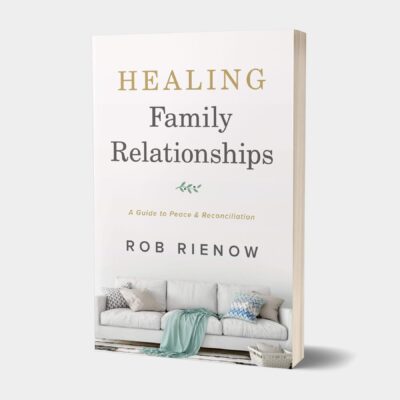There are five powerful ingredients we can include when we ask forgiveness from a family member. Before you share these things, it may be helpful to begin your conversation this way: I want to have an important conversation with you. I know we have been dealing with problems in our relationship, and I want you to know that some of those problems are my fault. I have some things I want to confess to you.
Step 1: Confession
Confession should be short and sweet. We simply state the wrong thing we did.
“I was rude to you.”
“I yelled at you.”
“I was jealous of you.”
“I neglected you.”
“I cheated on you.”
“I slapped you.”
“I have been looking at porn.”
“I lied to you about our money situation.”
If it is a list of things, go through the list. No sugarcoating. No blaming. No excuses. Just clearly admit what you did. This means battling through any shame we may feel. I remember a time when I spilled a large glass of water all over one of my books. I needed to get the book dried out quickly, so I had the brilliant idea of putting the book in the microwave. I cranked the thing up, and after a minute or so, the book caught on fire. It burned in there for a few seconds, and then after a loud bang, the microwave shut down. I quickly opened the microwave, grabbed the book, and threw it in the sink. There was smoke everywhere, and the microwave was shot. Amy was out, and I got everything cleaned up. When she came home, she smelled the smoke and asked what happened. I lied and said, “I was heating up my dinner in the microwave and accidentally left my fork on the plate. The metal fork started sparking and caused the microwave to blow.” I was ashamed of my foolishness so I tried to cover it up with a lie. Eventually, the truth came out, but I had done additional damage to the situation by failing to quickly confess the truth.
Step 2: Acknowledge you were wrong
This is an extraordinarily powerful sentence when it comes from the heart. After you have confessed your sins, simply say, “I was wrong.” Here are three words many people seem incapable of expressing. No one likes to admit being wrong. Our pride is like a cork in our mouths that prevents these words from escaping. In my experience, I am only able to honestly say this if I have done the needed vertical work of repentance. I need the Lord to soften my heart and break my pride, so that I can truly humble myself before my family.
Step 3: Express regret
This is the step where we say, “I am sorry.” But there may be value in pressing this to a deeper level. What are we sorry for? Are we sorry we got caught? Are we sorry for the annoying conflict? For me, when the Lord gives me a truly repentant heart, I am sorry, I feel bad, for how my words and actions hurt my family member. I am not “sorry this happened,” but I am “sorry that I hurt you.” You might say, “I know that my selfishness hurt you, and I am very sorry for that,” or “I feel terrible that my lies have hurt you and caused you not to trust me. I am sorry.”
Step 4: Commit to change
Repentance is a change of mind that leads to a change in behavior. While we cannot promise (or deliver) on a perfect future, we can express our desire to change our future behavior. “I want you to know that I have confessed these things to God. I have asked the Lord, and will continue to ask Him, to change my heart and help me to act differently.” In some situations, it may be necessary to take additional steps to clarify your commitment to pursuing change. “I have made the decision to start counseling with my pastor/Christian counselor,” or “I will be talking each week with (person’s name), who I have asked to help keep me accountable to making changes in this area of my life.”
Step 5: Ask for forgiveness
The prayerful goal of this process is that your family member will make the choice to forgive you for what you have done to contribute to the conflict. If they choose to forgive you, that does not mean all difficult feelings will be instantly erased. However, the process of asking for, giving, and receiving forgiveness are powerful steps on the path toward healing and reconciliation. After you have walked through the first four steps, consider saying something like, “I want to ask you a question. It is okay if you need time to think about this before you give me an answer. Will you forgive me for what I have done?”
At this point in the conversation, many things can happen. Anger. Tears. Silence. There is nothing you can do to manage the response. You are there to do your part. Lord willing, your conversation will be one of many important moments in the healing of the relationship.
An excerpt from “Healing Family Relationships” by Rob Rienow:
